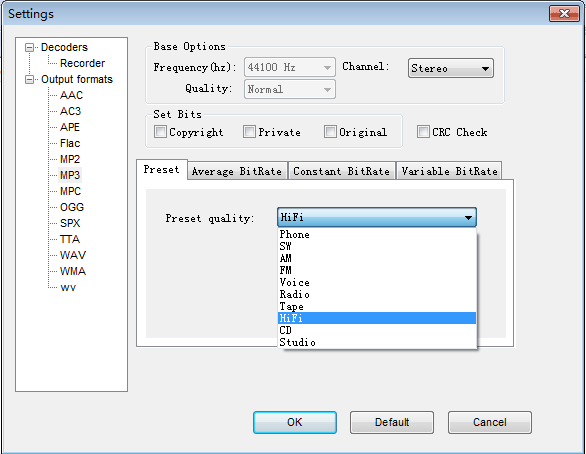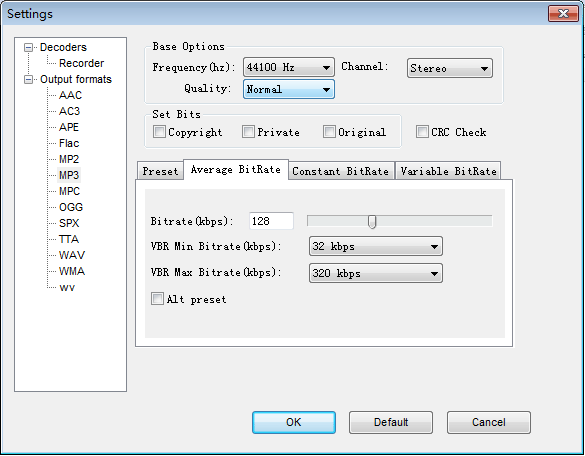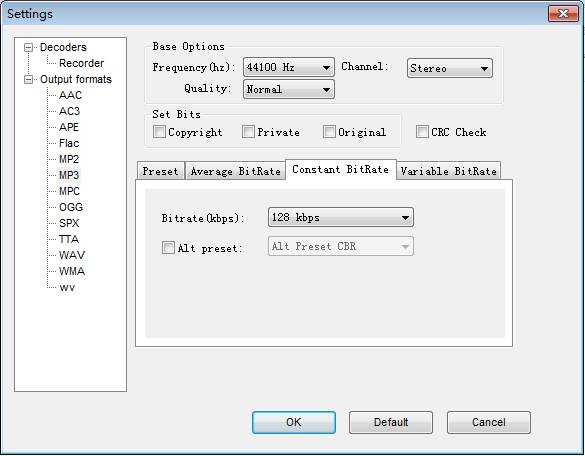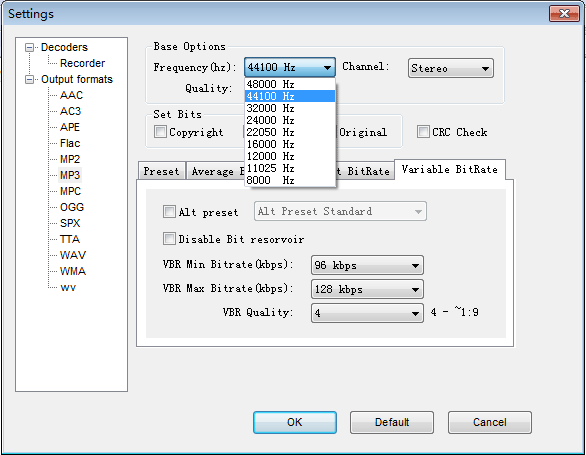|
Guide: How to decode wv file to wave with ease audio converter.
Ease audio converter can decode wv file to wave. This audio converter
can decode WV audio files to other popular formats and also can convert audio formats
between MP3,
WAV, WMA, MP4, M4A, MP2,SPX, APE, OGG, AAC,AC3,wavpack(wv) and FLAC.
Decoding WV to WAVE .You can decode the WV(wavpack) audio file as uncompressed wave file with ease audio converter, so you can in many audio editing software, edit the generated wave file.
The only thing you need for this is a reliable WV(wavpack) decoder that is able to perform fast and high-quality decoding. If you like to listen to excellent sounding music, you should select Ease Audio Converter.
Introduction of ease audio converter
Step-by-step Guide: How to convert
flac to wma with this ease Audio Converter?
Step 1: Click here
free download and install this Ease Audio Converter and then run it.
Step 2: Click "Add"
button from the main interface to load WV(wavpack) files. Then click combo-box
to
choose "WAV" as the output format. WV(wavpack) files will be
loaded as the following picture.

Step 3: Click "Browse" button to
choose an output path or use the default path without any operation:
Step 4: Click "Settings" button.Open the WAVE Settings
window, you may set any desired bitrate,
frequency, channels, etc. settings (optional).
Step 5:Everything is finally ready for the
audio converter to work.At last click the "Start"
button. It will start converting WV(wavpack) to WAVE .
wave settings

wv(wavpack) encoder Settings:

flac settings

mp3 settings




What is WV(wavpack)?
WavPack compression (.WV files) can compress (and restore) 8-, 16-, 24-, and 32-bit fixed-point, and 32-bit floating point audio files in the .WAV file format. It also supports surround sound streams and high frequency sampling rates. Like other lossless compression schemes, the data reduction rate varies with the source, but it is generally between 30% and 70% for typical popular music and somewhat better than that for classical music and other sources with greater dynamic range.
Hybrid mode
WavPack also incorporates a "hybrid" mode which still provides the features of lossless compression, but it creates two files: a relatively small, high-quality, lossy file (.wv) that can be used by itself; and a "correction" file (.wvc) that, when combined with the lossy file,provides full lossless restoration. This allows the use of lossy and lossless codecs together.
A similar "hybrid" feature is also offered by OptimFROG DualStream and MPEG-4 SLS.
What is WAVE?
In physics, a wave is a disturbance (an oscillation) that travels through space and time, accompanied by the transfer of energy.Waves travel and the wave motion transfers energy from one point to another, often with no permanent displacement of the particles of the medium—that is, with little or no associated mass transport. They consist, instead, of oscillations or vibrations around almost fixed locations. For example, a cork on rippling water will bob up and down, staying in about the same place while the wave itself moves onwards.
One type of wave is a mechanical wave, which propagates through a medium in which the substance of this medium is deformed. The deformation reverses itself owing to restoring forces resulting from its deformation. For example, sound waves propagate via air molecules bumping into their neighbors. This transfers some energy to these neighbors, which will cause a cascade of collisions between neighbouring molecules. When air molecules collide with their neighbors, they also bounce away from them (restoring force). This keeps the molecules from continuing to travel in the direction of the wave.
Another type of wave can travel through a vacuum, e.g. electromagnetic radiation (including visible light, ultraviolet radiation, infrared radiation, gamma rays, X-rays, and radio waves). This type of wave consists of periodic oscillations in electrical and magnetic fields.
A main distinction can be made between transverse and longitudinal waves. Transverse waves occur when a disturbance creates oscillations perpendicular (at right angles) to the propagation (the direction of energy transfer). Longitudinal waves occur when the oscillations are parallel to the direction of propagation.Waves are described by a wave equation which sets out how the disturbance proceeds over time. The mathematical form of this equation varies depending on the type of wave.
WV to aac
WV to mp3
WV to wave
WV to wma
WV to ogg |

